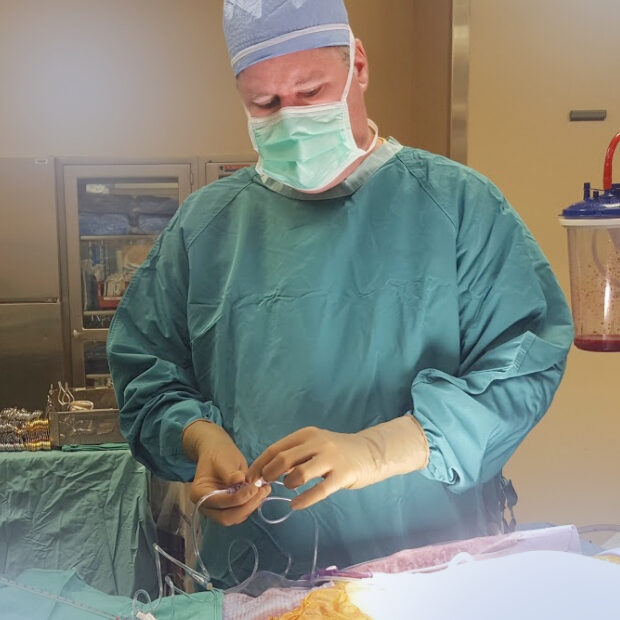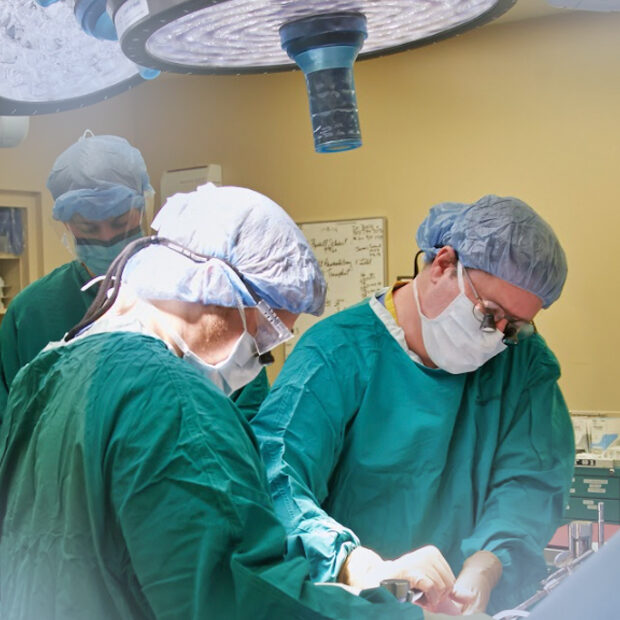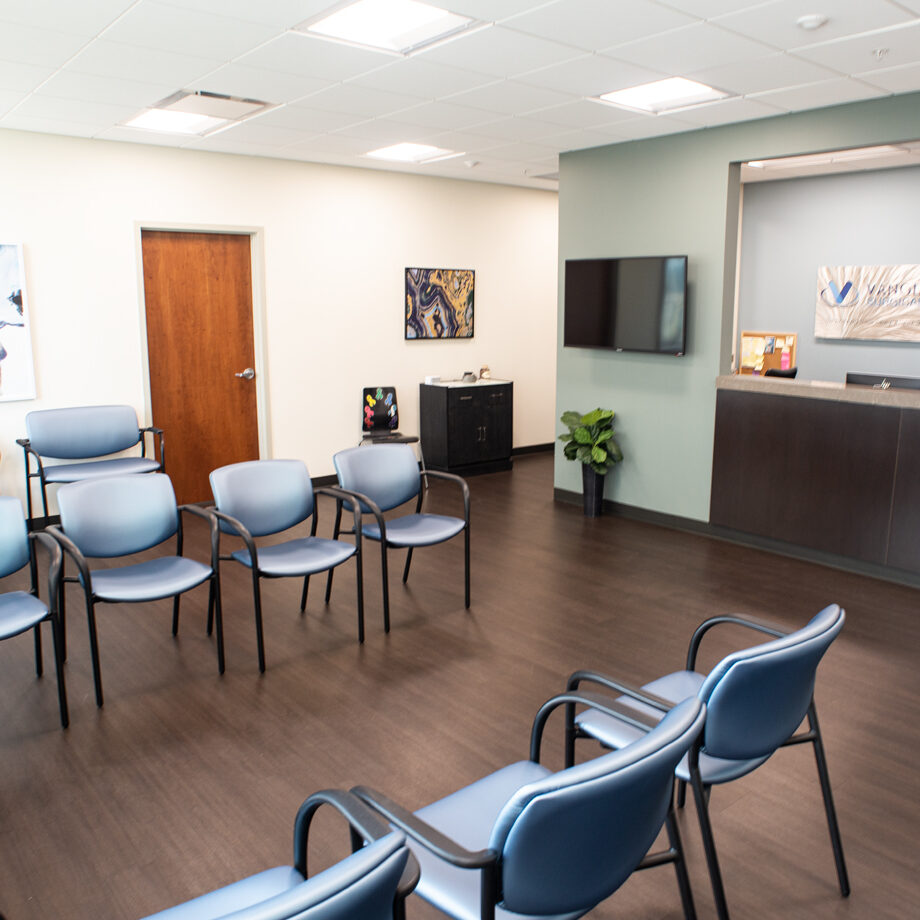Vanguard is a reliable resource for your patients suffering from Digestive Diseases

Gastroparesis can be a diagnostic challenge!
Gastroparesis is frequently misunderstood and underdiagnosed. It has been estimated to afflict 1.8% of the community while only 0.02% have been diagnosed.
The cardinal symptoms of gastroparesis (nausea, vomiting, bloating, early satiety, postprandial fullness and upper abdominal pain) are often confused with biliary colic and gallbladder dyskinesia.
Patients typically evolve to a carbohydrate rich diet as protein and fat empty poorly. This can result in a hyper-insulinemic state with fatty liver and weight gain, rather than weight loss. Therefore, weight loss should not be a necessary part of the diagnostic criteria.
Upper abdominal pain can be a very challenging part of the clinical picture. Gastric distension can increase wall tension, decrease perfusion and cause crampy upper abdominal pain. While narcotics should be avoided, their use should not preclude referral.
After obstruction is ruled out by upper gastrointestinal series (UGI) or esophagogastroduodenoscopy (EGD), gastric emptying scintigraphy confirms the diagnosis. It is important to get a 4-hr study for solids as insurance may not approve procedures without this information.
When should I refer patients to Vanguard Surgical?
First line therapy should include dietary modification, glucose control and, if possible, narcotic cessation.
Pharmacologic therapy includes prokinetic agents (metoclopramide, erythromycin, and/or domperidone), antiemetics (promethazine and/or ondansetron), and antacids (omeprazole, pantoprazole, etc.). While these often fail and can be poorly tolerated, they should be tried prior to referring for surgery.
In a recent study of 1,423 patients, only 4% rated that they were satisfied with available treatment. Furthermore, patients reported they would accept a median 13.4% risk of sudden death by taking a hypothetical medication, if it meant it could cure symptoms.
Patients have good surgical options. After 1) ruling out obstruction with UGI or EGD and 2) demonstrating delay for solids on gastric emptying study, refer gastroparesis patients that have failed both first line and pharmacologic therapy.


Why trust Dr. Hughes?
While at the University of Louisville for a decade as an abdominal transplant surgeon and Director of Pancreas Transplantation, Dr. Hughes placed more than 1,000 gastric stimulators (Medtronic Enterra I and then more recently Enterra II). His initial interest was in managing the severe gastroparesis affecting brittle diabetics undergoing pancreas transplantation. However, the demand became so great that he focused on gastroparesis and started his own practice tailormade to these patients.
Having placed more gastric stimulators than any other surgeon (according to Medtronic), he found that the gastric stimulator could be effective with treating nausea and vomiting but was less so with bloating, early satiety and pain. Oftentimes patients would have the stimulator turned up so high that the generator would reach end of service and require replacement in less than a year.
After seeing that patients continued to suffer and needed frequent surgeries to replace generators, Dr. Hughes began performing pyloroplasty on the patients requiring frequent generator replacements and found that oftentimes the stimulator was effective at much lower settings. Equally as significant, pyloroplasty was more effective at managing bloating, early satiety and pain. Some patients no longer needed the gastric stimulator after pyloroplasty was performed.
What is Vanguard Surgical’s approach to gastroparesis?
Consistent with published recommendations, Dr. Hughes now starts with pyloroplasty since only about 1/3 of patients need to go on to gastric stimulation. With time, we hope to be able to identify this 1/3 up front so we can offer simultaneous pyloroplasty and gastric stimulator placement. Currently, we try to have patients wait 3 months following pyloroplasty before proceeding with gastric stimulation. Gastric stimulation appears more effective with dealing with nausea +/- vomiting refractory to pyloroplasty than bloating, early satiety and pain.
Dr. Hughes also places gastric stimulators as a laparoscopic outpatient procedure that takes only about 1 hour. He programs the generator to its lowest settings. We then see the patient in clinic every 1-2 months for adjustments as needed. Having had the pyloroplasty first, we do not need to increase the stimulator as high as we would have without pyloroplasty.
It is also important to note that Dr. Hughes is the only surgeon currently in the world performing these surgeries in an ambulatory surgical center (ASC). This is significant for those patients with any out-of-pocket costs (e.g. deductibles, coinsurance, or cash pay) as the procedures are significantly less expensive at an ASC than at a hospital.
Do you offer per-oral pyloromyotomy (G-POEM or POP)?
Pyloroplasty is much more definitive and effective for gastroparesis than pyloromyotomy. This should not be surprising as pyloromyotomy is an operation performed for pyloric stenosis in infants, not gastroparesis. The per-oral version of pyloromyotomy (G-POEM or POP) does not separate the divided pylorus as widely as pyloroplasty does. Since we perform pyloroplasty laparoscopically as an outpatient procedure that is typically less than an hour, we do not see a role for G-POEM or POP in our practice. Furthermore, Dr. Hughes has had to perform laparoscopic pyloroplasty for quite a few patients after G-POEM or POP and has found that the pylorus typically has become unusually thickened and fibrotic.

“I have had the pleasure of meeting Dr Michael Hughes and subsequently referring some of my more difficult and refractory gastroparesis patients to him. He always sees them in very timely fashion and I always get his visit note. In fact, he texts me updates on their progress. His laparoscopic pyloromyotomy has worked very well for my patients thus far and they are pleased. They have all reported back that he has a good bedside manner and are pleased with seeing him. I’m quite satisfied as a referring physician with his excellent service and outcomes.” Dr. David Dresner, Gastroenterology of Southern Indiana, New Albany, IN.
“Dr. Hughes is a highly experienced surgeon with special expertise in the surgical management of gastroparesis (specifically laparoscopic pyloroplasty and implantation of gastric stimulators) and end-stage chronic pancreatitis with total pancreatectomy and islet auto-transplantation. If that’s what you have and thinking of surgery, look no further.” Dr. Muhammad Dawwas, UofL Health Gastroenterology, Louisville, KY.

Should patients be selected out with botulinum toxin (Botox) to the pylorus?
Having done more than 300 pyloroplasties, Dr. Hughes has found that the pylorus has oftentimes been replaced by fibrotic tissue that likely would not respond to Botox injection. Therefore, non-responders that could achieve great results with pyloroplasty would be excluded based on their failure to respond to Botox injection. Furthermore, Botox can create an inflammatory reaction to create fibrosis and more pyloric dysfunction long-term.
How do I refer patients?
Have your staff call our office at 502-912-8300. We can fax you our referral form. With the referral, please send your clinic notes, UGIS or EGD reports and the results of a 4-hour gastric emptying study for solids. Dr. Hughes also asks that you share your mobile number so that he can contact you immediately following all surgeries. He will share his mobile number with you as well. We will also fax you clinic and operative reports. Thank you in advance for your referrals! We enjoy caring for gastroparesis patients because we are able to improve their lives dramatically.

“I have been practicing Gastroenterology for 25 years. For the last 2-3 years I have been sending patients to Dr. Michael Hughes for laparoscopic pyloroplasty and gastric stimulator as surgical treatment for gastroparesis. The patients have been very pleased with their care and I have been very pleased with the results. I highly recommend Dr. Hughes.” Dr. Matthew Miller, Gastroenterology, Mt. Sterling, KY.
“Dr. Mike Hughes has a fantastic practice that I would recommend to anyone. I have referred many patients from my practice in Ashland, KY with wonderful outcomes. Patients gain a greater quality of life from life changing surgical procedures. Dr. Hughes personally updates me on my patient’s status and always goes the extra mile.” Ashlee Eichenlaub, APRN, Kings Daughters Health, Gastroenterology, Ashland, KY.

How we communicate with you?
We are strong advocates for the safety and welfare of all of our patients. We will get them in quickly and answer all phone calls within 24 hours. Communication with you is also very important to us. We’ll text and call you after your patient’s operation and as a follow-up if there are any complications. We also do our best to fax op notes so that you are fully informed.
How to reach us:
Vanguard Surgical, LLC
Northwest Medical Office Building
2401 Terra Crossing Blvd, Suite 375
Louisville, KY 40205
Office: 502-912-8300
Fax: 502-912-8310
Email: info@vanguardsurgical.net
